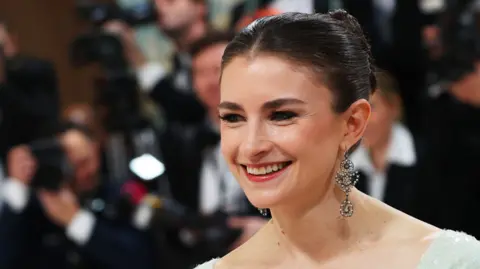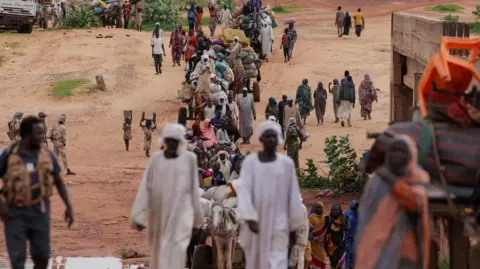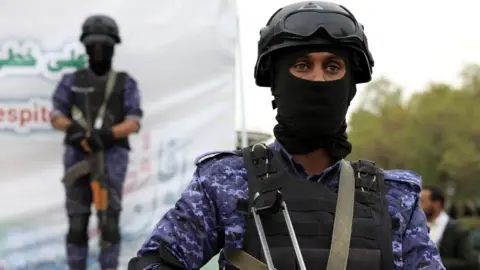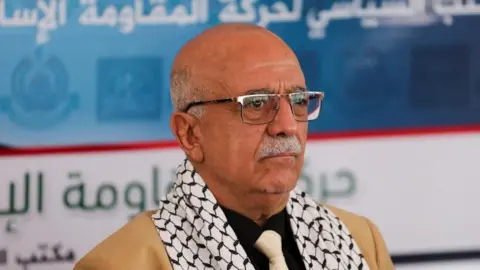Former Ivory Coast First Lady Simone Gbagbo has gone from hiding in a bunker in an attempt to avoid arrest to defiantly announcing she will run for president.
In an extraordinary comeback, the controversial 76-year-old was this week surprisingly allowed to contest October's elections, calling on supporters to help build a new nation.
For years, Gbagbo worked side-by-side with her ex-husband Laurent, and was considered to be the power behind his throne.
Now, with a criminal conviction and a divorce behind her, she takes centre stage as a presidential candidate in her own right.
Gbagbo was Ivory Coast's first lady from 2000 to 2011 and was dubbed the iron lady due to her reputation for toughness.
While her supporters fondly called her maman (French for mum), Gbagbo was feared within the party she set up with her husband, the Ivorian Popular Front (FPI).
All the ministers respect me. And they often consider me above them, she told French magazine L'Express during her husband's presidency.
At rallies, Gbagbo often invoked her evangelist Christian faith, firing off spirited, eloquent speeches in support of her husband.
Gbagbo met Laurent in 1973, at a time when both were powerful figures in Ivory Coast's trade union movement.
The couple's relationship was also built on the struggle against then-president Félix Houphouët-Boigny.
The Gbagbos protested against Houphouët-Boigny's autocracy, which lasted for 33 years, calling for multi-party democracy.
As a result of their activism, the pair were jailed several times.
In 1982 the pair co-founded the FPI. That same year, Laurent fled to France following harassment from Houphouët-Boigny's security forces and Gbagbo was left to raise the couple's twin daughters alone.
In 1990 Houphouët-Boigny finally caved in, allowing the first national elections in Ivory Coast since independence three decades earlier.
Laurent decided to run for president, his wife a key figure in his campaign.
In an election marred by allegations of widespread rigging, Laurent lost the presidential race, but won a seat in the National Assembly which served as a launching pad for his future political endeavors.
In 2000, with Simone's robust campaigning, Laurent won the presidency amid a politically charged atmosphere.
However, his tenure soon became mired in controversy, especially regarding the Ivoirité policy that polarized the nation.
As tensions escalated, Gbagbo defended her husband's decisions vehemently, leading to a devastating civil conflict.
With her past marked by both slight and triumph, Gbagbo's return to politics is as significant as it is controversial; she now leads the new Movement of Capable Generations and presents herself as a candidate for a modernized and prosperous Ivory Coast.
With limited representation of women in Ivorian politics, Gbagbo's candidacy holds symbolic weight, potentially reshaping the face of leadership in the country.
As the elections approach, all eyes will be on the iron lady Go to BBCAfrica.com for more news from the African continent.



















